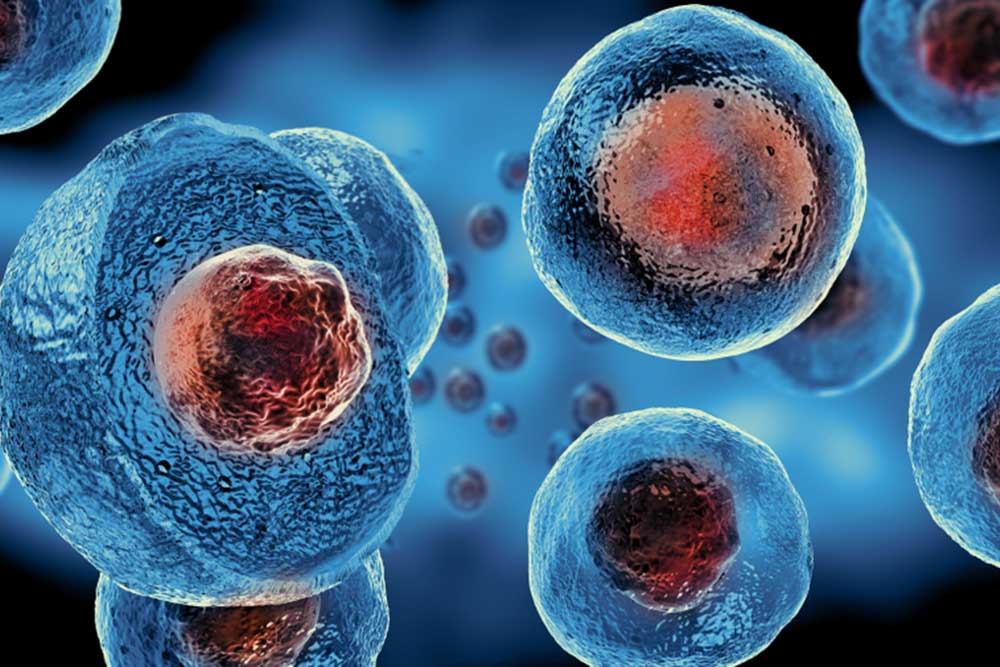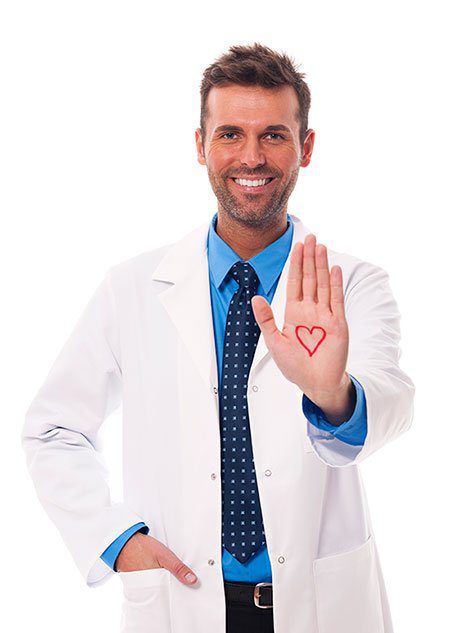Stem Cell Therapy
(Stem Cell Therapy) Stem Cells are the cells from which all other cells with specialized functions in the human body differentiate or are produced, as these stem cells divide to form more cells called daughter cells. No other cell in the body has the natural ability to generate new types of cells.
These daughter cells either become new stem cells (self-renewing) or become specialized cells (differentiation) with a more specific function, such as blood cells, brain cells, heart muscle cells, or bone cells.

Why is the medical community interested in stem cells?
Stem cells are one of the most important topics that researchers are trying to develop and discover new things, as researchers and doctors hope that stem cell studies will help in:
- Increased understanding of how diseases occur: Researchers and clinicians may gain a broader understanding of how diseases occur and the conditions that lead to them by observing stem cells as they grow and differentiate into cells in bones, heart muscle, nerves, and other organs and tissues
- Generating healthy cells to replace diseased cells: Stem cells can be directed to become specific cells that can be used to regenerate and repair diseased or damaged tissues in humans.
People with stem cell therapies may benefit from:
- Spinal cord injuries.
- Type 1 diabetes.
- and Parkinson’s disease.
- Amyotrophic lateral sclerosis.
- Alzheimer’s disease.
- heart disease.
- brain attack.
- cancer.
- arthritis.
- burns.
Stem cells may have the potential to grow into new tissues for use in transplantation and regenerative medicine, and researchers continue to discover all about stem cells and their applications in transplantation and regenerative medicine.
- Test new drugs for safety and efficacy: Researchers can use some types of stem cells before using experimental drugs in people to test drugs for safety and quality.
What are the types of stem cells?
Stem cells are divided into two main forms which are embryonic stem cells and adult stem cells.
Embryonic Stem Cells : These cells are from embryos resulting from the in vitro fertilization procedure that were donated to science and are multipotent, meaning that they can transform into more than one type of cell. However, many questions and issues have been raised about the ethics of embryonic stem cell research.
Adult Stem Cells :
Adult stem cells are divided into two types:
- Stem cells from mature tissues:
This type is present in the tissues of the brain, bone marrow, blood, and blood vessels up to the liver. There are only a few stem cells in these tissues, as they differentiate into only certain types of cells, meaning, in other words, that stem cells that come from the liver produce new cells for the liver only.
- induced stem cells:
These are stem cells that have been modified in a laboratory to be more like embryonic stem cells. Scientists first reported that human stem cells could be altered in this way in 2006.
iPS cells do not appear to be different from embryonic stem cells, but scientists have yet to find a cell that can differentiate into every type of cell and tissue in the body.
Abnormalities are also likely to occur in adult stem cells due to environmental hazards, such as toxins, or from errors that cells acquire during reproduction. Despite this, researchers have found that adult stem cells are more adaptive than first thought.
Are stem cells used to actually treat diseases?
Yes, doctors perform stem cell transplants, also known as bone marrow transplants. In stem cell transplants where stem cells have replaced cells damaged by chemotherapy or disease.
It was used to fight some types of cancer and blood-related diseases, such as leukemia, lymphoma, neuroblastoma, and multiple myeloma. These transplants use adult stem cells or umbilical cord blood.
The researchers are testing adult stem cells to treat other conditions, including a number of degenerative diseases such as heart failure.
What are the benefits of stem cell therapy?
Stem cell therapy can be very beneficial in long-term chronic diseases but it is often used in combination with other therapies to get the best effects. These diseases include:
1. Arthritis:
Arthritis is an inflammatory condition that affects the joints but stem cell therapy can help by repairing joint cartilage damage and reducing the inflammation that occurs in and around the joint.
2. Crabs:
Stem cell transplants can be used to treat leukemias and lymphomas, to replace cells that have been damaged by disease.
3. Parkinson’s disease
Stem cells can be used to repair nerve damage that occurs in Parkinson’s disease, and new research shows the treatment may help replace dopamine-producing brain cells destroyed by the disease.
4. Heart diseases:
Heart regeneration using stem cell therapy is used to help patients who have had heart attacks, patients with heart failure, and even patients with diseases of the large and small vessels.
The goal of treatment is to allow stem cells to repair and replace damaged tissue in the heart and blood vessels.
5. Multiple sclerosis:
Stem cells are used to help repair neurological damage that occurs in MS, and studies show that they can also improve the health of brain cells. Stem cells also help control abnormal immune system activity, which plays an important role in MS.
6. Diabetes:
Stem cells may help replace lost or damaged beta cells, which are special cells in the pancreas that produce insulin. Both type 1 and type 2 diabetes involve problems with beta cells (either there are not enough beta cells – or any cells – or the cells are not working properly). Stem cell therapy may be beneficial in patients with either type.
7. Kidney disease:
They are used to treat both acute and chronic kidney infections and kidney disease. The goal is to replace damaged cells and cells that have already been lost due to tissue damage.
What are the challenges in using embryonic stem cells in humans?
In order for embryonic stem cells to be useful to humans, researchers must ensure that the stem cells will differentiate into the specific cell types that are desired.
Researchers have discovered ways to direct stem cells to become specific types of cells, such as directing embryonic stem cells to become heart cells.
But embryonic stem cells may grow irregularly or specialize into different types of cells spontaneously. So researchers are studying how to control the growth and differentiation of embryonic stem cells.
Embryonic stem cells may also trigger an immune response in which the recipient’s body attacks the stem cells. It is considered a foreign body or the stem cells may simply fail to function normally.
Some people find it unethical to use stem cells that come from embryos.
How can I book for stem cell treatment in Türkiye?

- Free medical support on the phone: You will have a dedicated representative for your health condition who is always ready to answer your questions.
- Free consultation with a specialist doctor: Your medical representative will consult with a number of doctors and hospitals to find the best possible treatments.
- Free travel visa arrangement: We will contact the embassy in your country to assist you in obtaining a visa to visit Türkiye.
- Free itinerary planning: We will create a schedule for your medical trip to Türkiye.
- Free translation of documents and reports: We will translate medical documents and reports into Turkish on your behalf.
- Free support and monitoring: We will monitor the stages of treatment and be by your side every step of the way.
- Free instant translation: We will be with you during the treatment stages to provide translation between you and the medical team.
- Free accommodation and transportation coordination: We will book accommodation for you and your companions in Türkiye, along with transportation services.
Contact REHABTÜRK doctors for more information about the procedure and to evaluate your medical condition.

